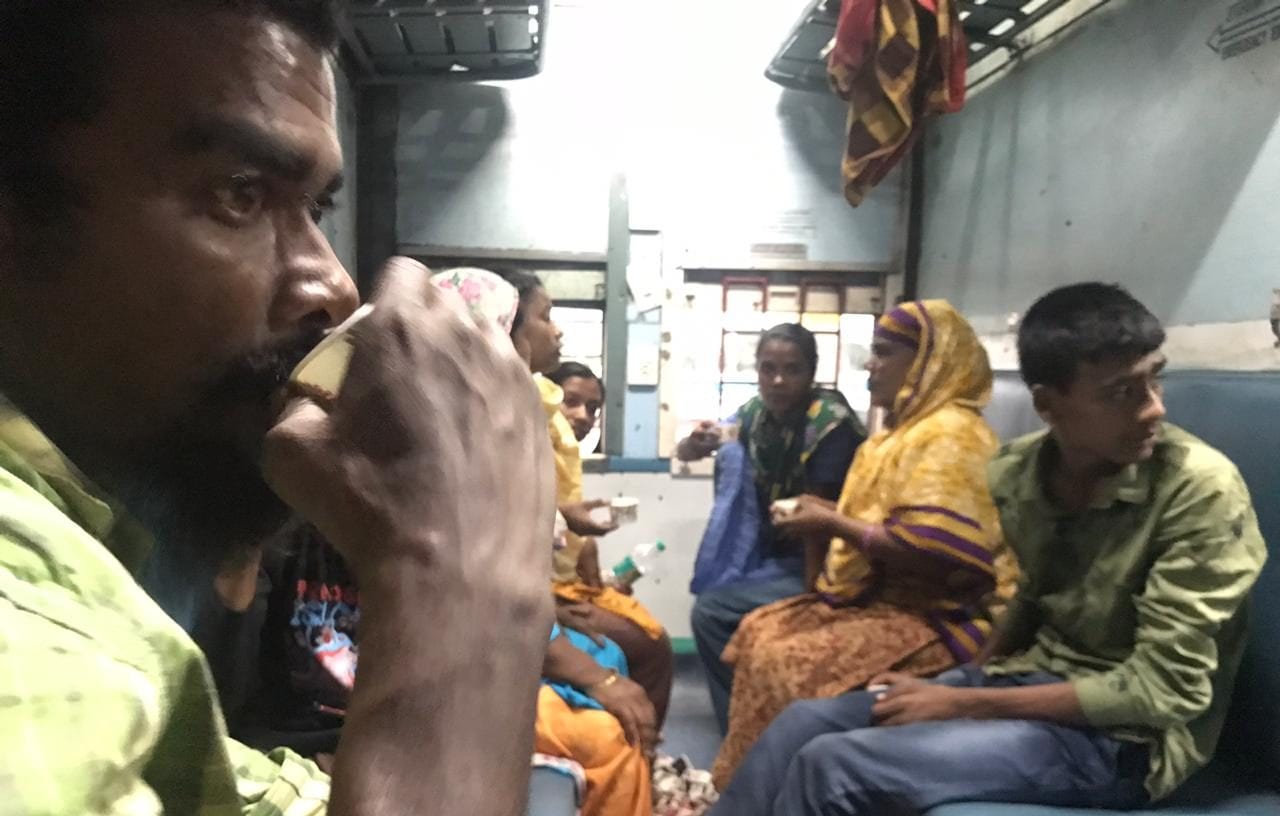
Lack of repatriation laws could push Bangladeshi migrants to no man's land

As a team of Bengaluru police on Saturday (November 23) afternoon shepherded to Howrah 61 suspected Bangladeshi nationals, detained earlier for illegally staying in the country, to deport them to their country of perceived origin, the procedural mess, so often surrounded with the contentious exercise, played out again.
The detainees, including women and children, were left stranded for several hours at the Howrah railway station due to lack of “proper paperwork” before West Bengal police took them to custody late in the evening on “humanitarian ground.”
The sources in the West Bengal’s police intelligence branch (border) said the frenzied “push-back” mission of the Bengaluru police did not follow “due repatriation procedures.” Hence, the matter would be taken up with the central government for further instruction before handing over the “undocumented migrants” to the Border Security Force (BSF).
Also read: Who will get Roshanara Begum and Raziya Sultana home to Bangladesh?
Deportation in violation of laws?
The biggest worry, sources said, was that in all likelihood the neighbouring country would refuse to accept these people as its nationals since the Article 36 of the Vienna Convention of Consular Relations 1963, was not followed while trying to deport these so-called Bangladeshi nationals.
The article suggests that the “competent authorities of the receiving state shall, without delay, inform the consular post of the sending state if, within its consular district, a national of that state is arrested or committed to prison or to custody pending trial or is detained in any other manner.”
Unfortunately, despite the issue of the alleged influx of illegal migrants from Bangladesh being a political hot potato, proper guidelines were not put in place by New Delhi on how to carry out repatriation of those who enter India from Bangladesh without valid travel documents. This is largely because India has no domestic law to deal with refugees or illegal migrants as it is not a signatory to the 1951 United Nations Refugee Convention or its 1967 Protocol.
Also read: Train with ‘illegal’ Bangladeshis reaches Howrah; protests erupt
In the absence of any domestic law to deal with the sensitive issue, India’s attempts of pushing illegal Bangladeshi immigrants back to their country of origin are devoid of any legal shield and often lead to ugly scenario of “deportees” languishing in no man’s land between the borders of two countries for days.
In January this year, India was compelled to take back a group of 31 Rohingya refugees, who were stranded on the international border between India and Bangladesh in Tripura for about a week, after the Border Guards Bangladesh (BGB) denied them entry into its country, accusing Border Security Force (BSF) of forcibly pushing the group into its territory.
Often such attempts lead to a standoff between the border guards of the two countries and create diplomatic tension between the two neighbours.
Caught in the crossfire
To avoid such complicacies, experts say, Bangladeshi nationals arrested by Indian authorities under Foreigners’ Act 1946, are generally treated as criminals by police and even judiciary in most cases and sent to judicial custody. Bengaluru police, however, did not press any criminal charges against the detainees either on “compassionate ground” or maybe because it was unaware of the complexities associated with the deportation process.
“Though we thank the Karnataka government for not putting any criminal charges against these accused persons, yet the question of pursuing proper legal procedures while conducting repatriation remains,” said Banglar Manabadhikar Suraksha Mancha (MASUM), a West Bengal-based rights group, which is battling for decades for a “legal framework” for proper repatriation of illegal migrants.
“We perceive this move of the Karnataka government as an autocratic executive decision that goes against the Article 21 of the Indian Constitution that guarantees right to life,” said Kirity Roy, secretary of the rights body.
Bengaluru’s Bangladeshi labourers should be proud; the shame is ours
He pointed out to The Federal several flaws in the process. “Where is the judicial process for their repatriation? How were the accused identified as Bangladeshi nationals? Was the Bangladeshi government intimated about the repatriation?” he asked.
The police team accompanying the detainees apparently had no answer to these questions.
When contacted, a spokesperson of the Bangladesh Deputy High Commission in Kolkata said they too were not aware of the development. Even the BGB officials reportedly told Bangladesh’s media that they were not informed of any deportation attempts by their Indian counterparts.
Amid the imbroglio, the detainees, who were mostly working as rag pickers in the Karnataka capital, now stare at an uncertain future.
“They could just be pushed back across the India-Bangladesh border by the BSF without the consent of the Bangladeshi authorities as had been done by it in the past,” said Dhiraj Sengupta of the Association for Protection of Democratic Rights (APDR), which had staged a protest in Howrah station on Saturday against the deportation move.
Such extralegal process often proved to be ineffective as the deportees often re-enter the country through another porous stretch of the border.
To deal with the peculiar situation, the experts like Roy, who have been working over the issue for years, suggest that India should ink a bilateral agreement with Bangladesh clearly defining the process of taking back nationals, who stay illegally in the other country, after due verification through legal process.


